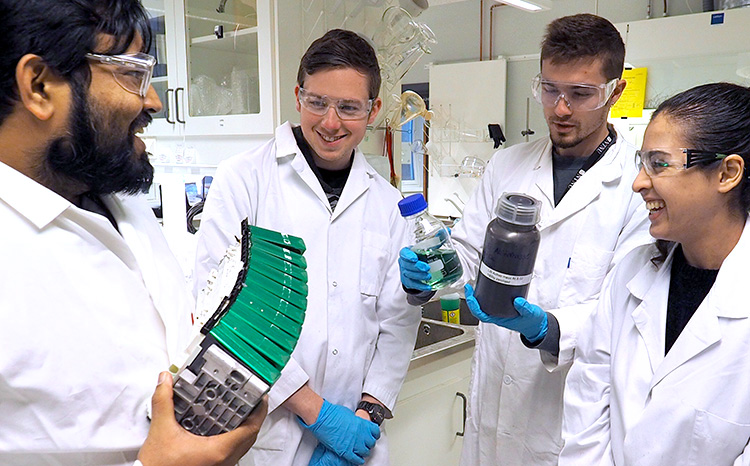What is chemical engineering?
What is Chemical Engineering?
What is Chemical Engineering?
Chemical Engineering involves processing raw materials into products that the world needs. This involves taking the chemistry from laboratory scale into industrial production. Achieving this requires a broad range of knowledge, from molecular processes and nanotechnology to calculation and design of process equipment, as well as construction and operation of large processing plants.
The research area is important to obtain sustainable development, for instance environmentally friendly and energy-efficient resource utilization, CO2 capture, water treatment, and advanced separation technologies, production of hydrogen and fertilizers, recycling of plastics and batteries, development of new processes based on biological raw materials, and the use of AI to solve chemical engineering problems.

Studies in Chemical Engineering at NTNU
The Department of Chemical Engineering at NTNU offers spezialisation within chemical engineering, and you can find information about the study programs here.
The comprehensive approach in the study programs, spanning from molecular level through unit operations to design of entire process plants, results in graduates who are highly sought after in industry, research, and management.
Research within Chemical Engineering at NTNU
At the Department of Chemical Engineering at NTNU, we conduct research in many disciplines, lik catalysis, separation technology, fluid mechanics, thermodynamics, reactor technology, biochemical engineering, surface and colloid chemistry, nanotechnology, systems biology, process design, control and optimization.
The research at the department is organized into four research groups:
- Catalysis
- Colloid and Polymer Chemistry - Ugelstad Laboratory
- Environmental Engineering and Reactor Technology
- Process Systems Engineering
Read more about the research at the department here.


